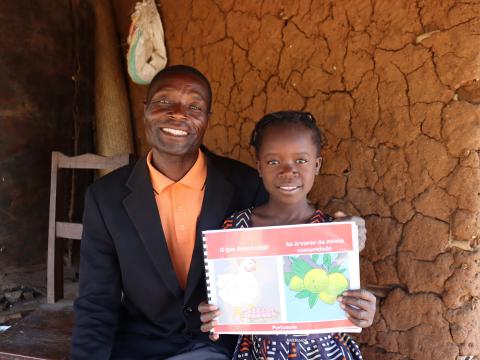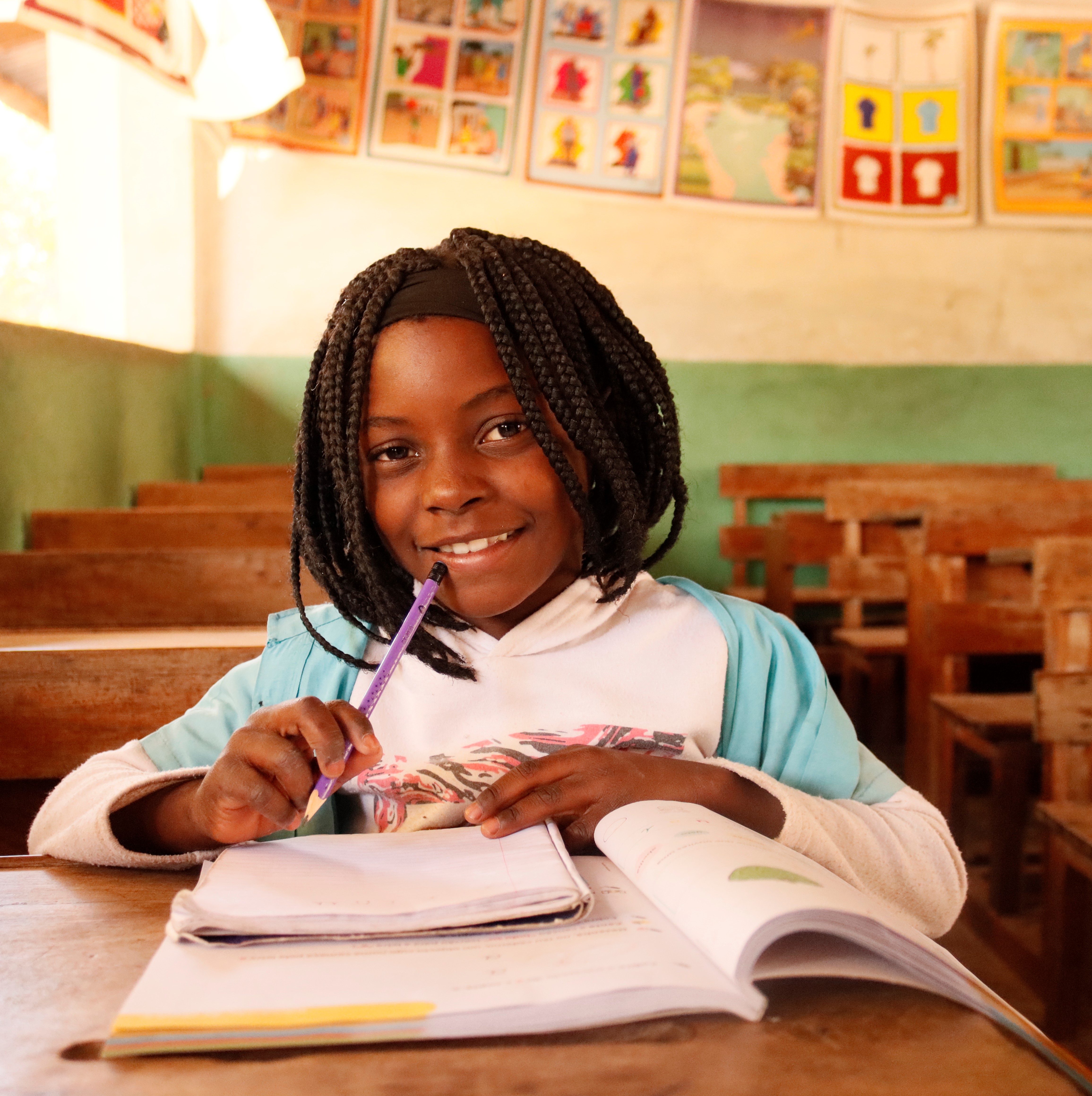Children's potential unlocked through reading competitions


The story of Alima, an 8-year-old first-grader, and Belucha, a 10-year-old second-grader, is similar. They shared the same platform on June 16, International Day of the African Child, when they emerged victorious in the reading competition held in one of the provinces in Mozambique.
Both hail from low beginnings, having grown up in rural places where poverty, child labour, early marriages, and other obstacles to education still exist. Thankfully, the girls' commitment to improving their literacy is bolstered by the encouragement of their parents, guardians, instructors, and reading camp volunteers.
These actors' involvement in the education of the children is an example of community action, which is one of the four elements of World Vision's Unlock Literacy approach, which aims to help children become more proficient readers. Unlock Literacy is being used by Educating Children Together - Phase III (ECT-3), which is being implemented in WV Mozambique's working areas, to foster a culture that inspires a love of reading and writing in children at a young age in addition to helping them become fluent readers and writers.
Belucha's genius was immediately apparent in the first grade. She attends a primary school and has won four consecutive honours in school-level, inter-school, and district-level reading competitions. “I was happy to win school notebooks, bags and a bicycle. I also want to thank my parents, my teachers and reading camp promoter for helping me study. I will continue to apply myself so one day I can be a teacher”, she said.
“She is eager to learn, is very active on the classroom and enjoys reading her learning and story books”, says Franque Castro, Belucha’s teacher, who received training on Unlock Literacy approach. Enoque Alberto, who is Belucha’s reading camp volunteer, highlights the qualities of the pupil. “She is always the first to answer questions during our reading camp sessions. She is not shy and always is active”.
The house where Belucha lives is a few steps away from school. Here, alongside her siblings, she finds encouraging parents who make sure school is a priority. Alberto, father of Belucha, describes her as a “normal and obedient child”. In addition to volunteering at reading camps and working as a carpenter in his home shop, he makes himself available to his children for any concerns they may have about subjects covered in school. “I’m very happy for my daughter success and I pray to God that she perseveres in this path so she can go further in education”, said her father, Alberto, celebrating the achievement.
Likewise, Alima, enjoys the support from her aunt, Fatelma, who is a teacher.
“When she was drafted to compete with students from other schools, I was motivated and began training her in reading, spelling vowels, diphthong and consonant exercises. On the first big contest, held during the International Children’s Day, she was a little insecure and took a while to spell some words. That did not stop her to study more. Then, on the reading competition between districts, Alima took all of us by surprise because she spoke so well, that people thought she was from a higher grade”, she recalls.
Alima is even more motivated to continue her studies and participate in reading competitions. She says, “I am happy that I won the contest in my grade and, I want to study more so one day I can be a nurse”.
Unlock Literacy focuses on helping children improve five core skills of reading acquisition: letter knowledge, sounding out words, reading fluency, vocabulary, and comprehension. With funding from the United States Department of Agriculture (USDA), the ECT-3 project has already trained 505 primary school teachers on Unlock Literacy approach, opened, and equipped 530 reading camps where just over 14,000 children participate.